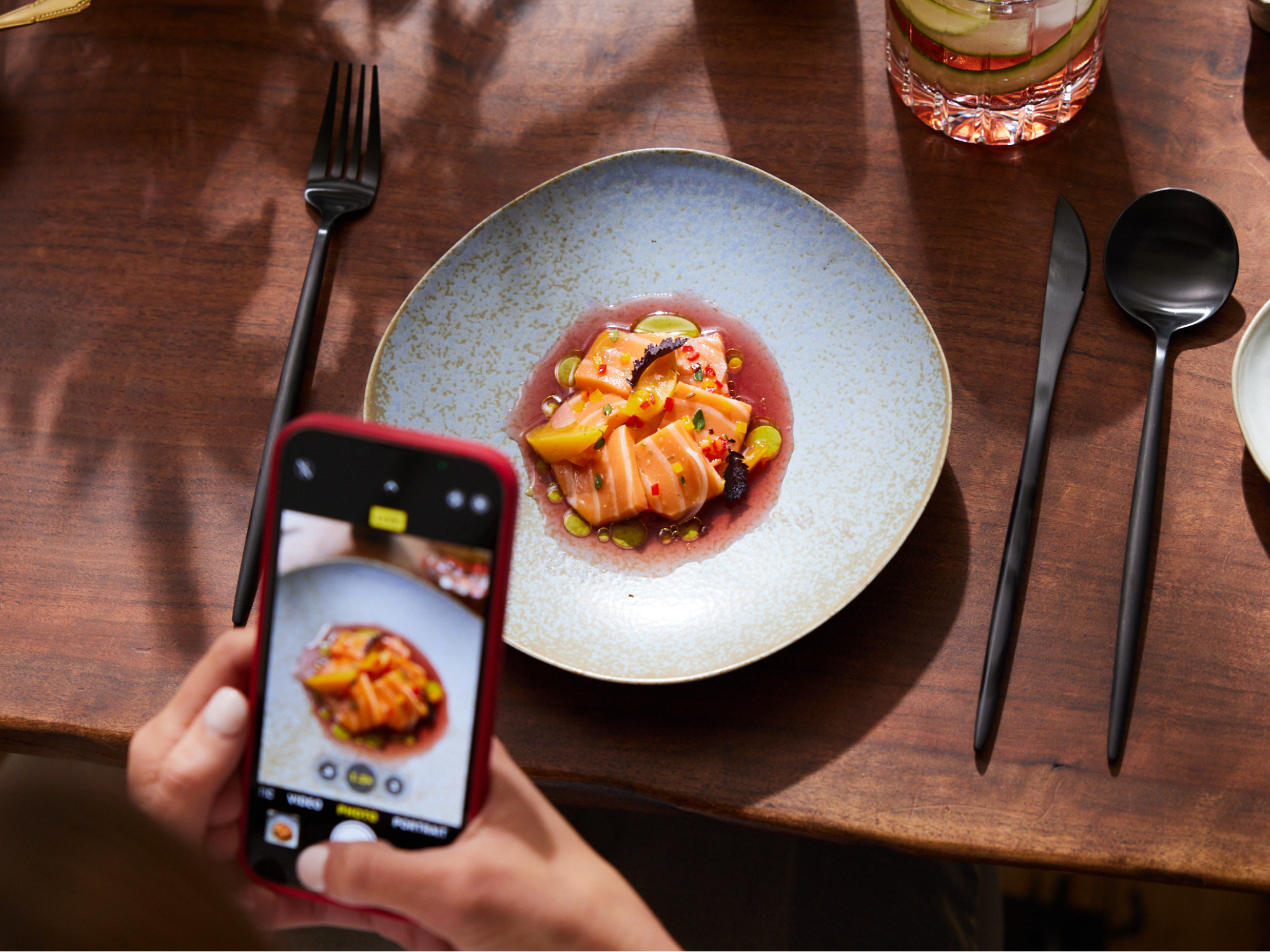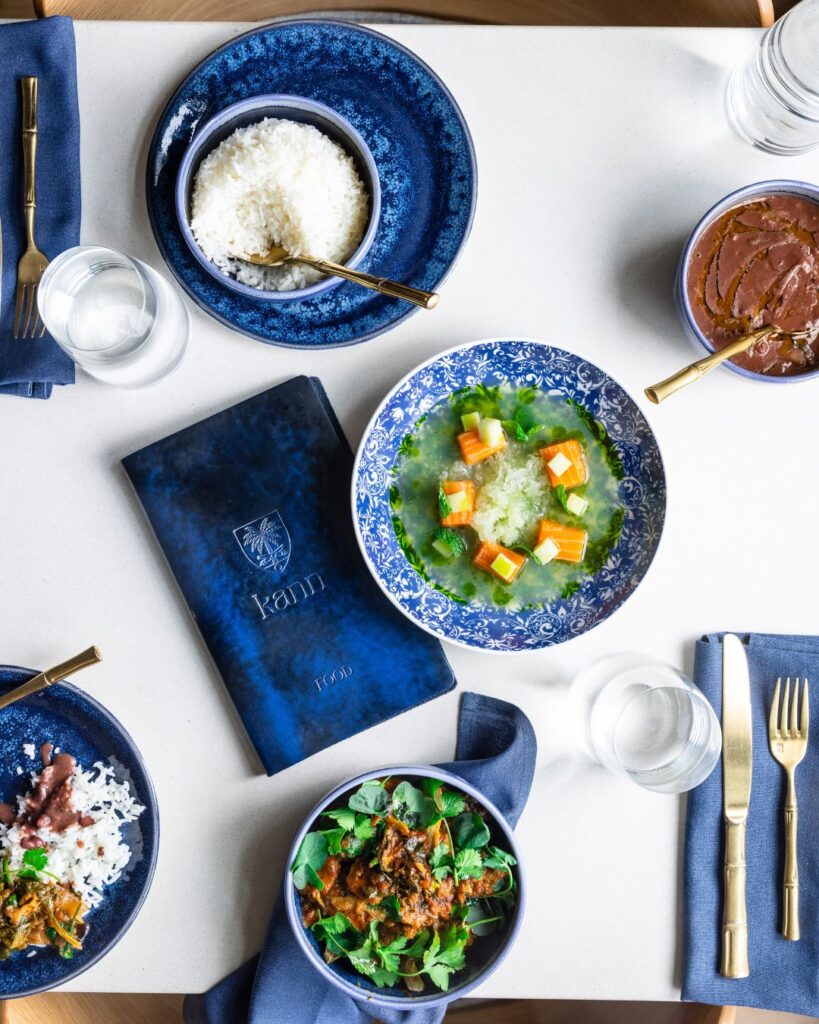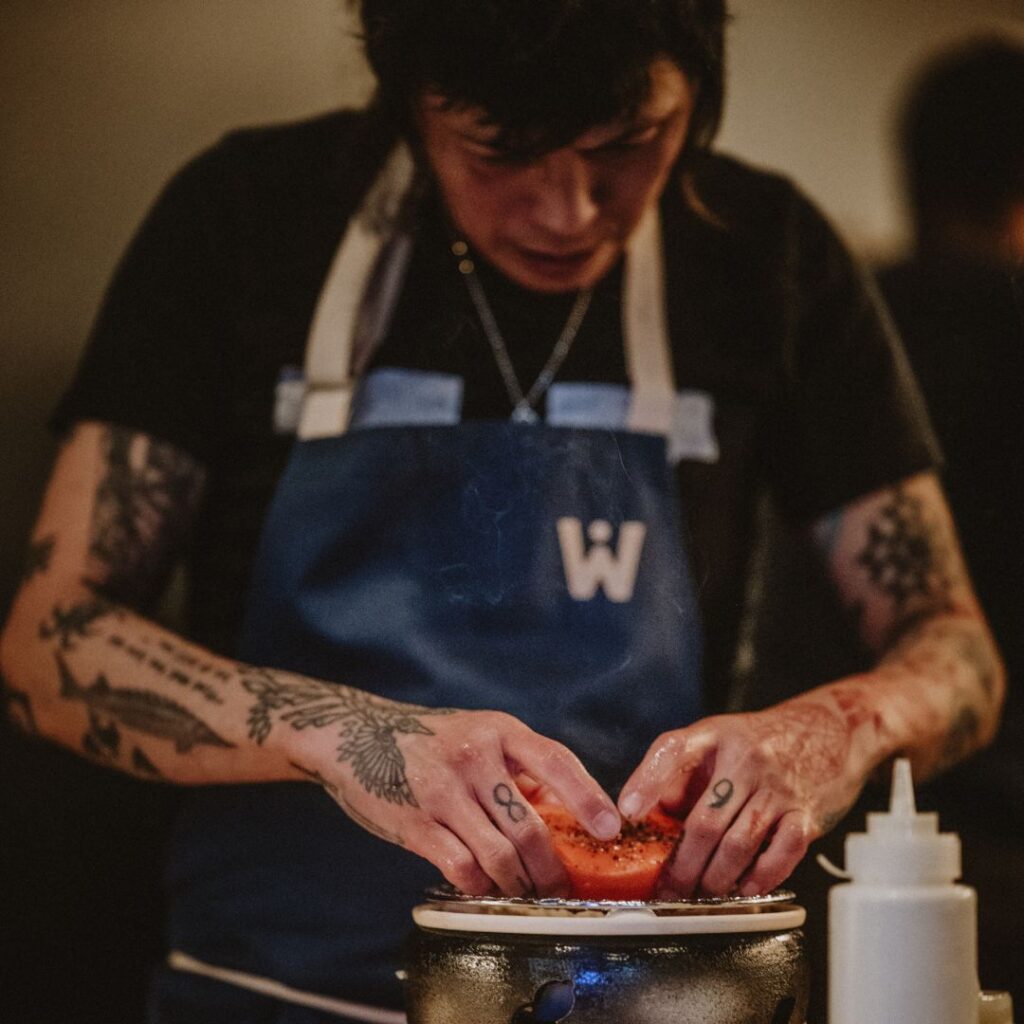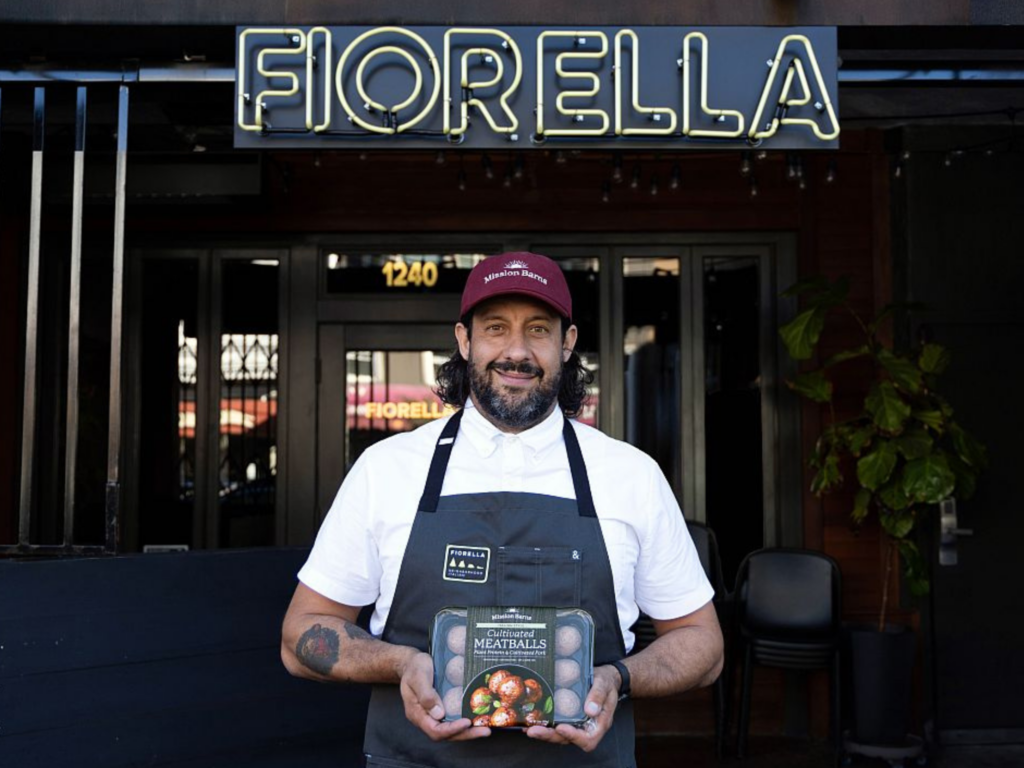
Californian food tech startup Wildtype is taking its cultivated salmon to restaurants across the US, showcasing its potential with award-winning chefs.
More and more Americans can now get their hands on cultivated seafood, thanks to San Francisco firm Wildtype’s expansion drive.
The company’s cell-cultured coho salmon, which received approval from the Food and Drug Administration (FDA) in late May, is now available in four restaurants, with another soon to be announced.
The product is available at eateries in Oregon, California, Washington, and Texas – in the latter, it’s a limited-time offering, given the incoming ban on cultivated proteins next month. With these rollouts, Wildtype is aiming to enhance consumer acceptance by letting award-winning chefs get the best out of its innovation.

How America’s chefs are serving Wildtype salmon
The first restaurant to feature the Wildtype salmon was Kann in Portland, Oregon, where it’s paired in a summery dish with pickled strawberry, spiced tomato, strawberry juice, and an epis rice cracker.
“We take pride in the ingredients we utilise,” said chef-owner Gregory Gourdet. “Introducing Wildtype’s cultivated salmon to our menu hits the elevated and sustainable marks we want our menu to offer guests who share a similar value system to ours.”
The sushi-grade cultivated salmon then made its debut at Otoko, led by Yoshi Okai. The Austin eatery is known for a multi-course omakase experience that blends Tokyo-style sushi and Kyoto-style kaiseki, with tasting menus costing between $150 and $250.
“Farm-raised salmon creates so much pollution, so it’s not sustainable. You want to enjoy seafood long-term, so Wildtype’s good because you don’t have to kill the fish anymore,” said Okai. “It’s something new. It’s awesome.”

Now, Wildtype is returning to its home state of California through a partnership with Adam Tortosa’s San Francisco outpost, Robin. Also an omakase restaurant, its tasting menus range from $119 to $219, with Wildtype landing on the menu on August 14.
“The way I would describe Wildtype’s taste is the same as regular salmon. If it didn’t taste like salmon, we wouldn’t consider it,” Tortosa said. “I’m more excited about what it means for the future of the seafood industry. It means that there is a future.”
A week after landing at Robin, Wildtype’s salmon will make its way into Seattle, where it will be on the menu of James Beard-nominated oyster bar The Walrus and the Carpenter. Chef Renee Erickson will serve it as part of a tostada, with the salmon tossed with lime juice and paired with cucumber, pickled carrot, olive oil and herbs.
“The Wildtype salmon saku that we serve raw has pure salmon flavour – it’s amazing. It also has a really dense, nice quality, and I think the fattiness and the deliciousness you’re used to in wild salmon, you get as well in this,” Erickson noted. “It is mind-blowing that it actually is salmon, just not in the sense of what I’ve been used to my entire life.”

More cultivated meat expected on restaurant menus
Backed by the likes of Robert Downey Jr, Leonardo DiCaprio and Jeff Bezos, Wildtype obtains living cells from Pacific salmon, which are adapted to suspension culture. They are grown in tanks similar to those used to make beer or kombucha, under temperature and pH conditions that wild fish thrive in, alongside a nutrient mix containing proteins, sugar, fat, salt, and minerals like iron and zinc.
The cells are harvested using bowl centrifugation, washed three times with a water and sugar solution, rapidly cooled using blast chillers, and stored frozen. They’re mixed with certain plant-based ingredients to replicate the structure and texture of conventional salmon.
The spate of rollouts follows the FDA’s issuance of a ‘no questions’ letter to Wildtype, which confirmed that the cultivated salmon is “as safe as comparable foods produced by other methods”. Founders Aryé Elfenbein and Justin Kolbeck told Green Queen that the startup plans to debut in retail too, following the foodservice launches. It isn’t the only cultivated protein to land restaurant deals in the US this year.
Mission Barns, which received the FDA green light in March and US Department of Agriculture approval last month (Wildtype’s salmon does not fall under the latter’s oversight), will soon debut its cultivated pork at Fiorella Sunset in San Francisco this quarter. Its meatballs will also be available at Sprouts Farmers Market.

These developments come in what is turning out to be a milestone year for cultivated meat in the US. In July, Israel’s Believer Meats joined the list of startups with FDA authorisation for its cultivated chicken.
These three regulatory wins two years after Upside Foods and Good Meat’s cultivated chicken products made their way at restaurants in the US, including at Dominique Crenn’s Michelin-starred Bar Crenn in San Francisco and José Andrés’s China Chilcano in Washington, DC. Upside Foods is now aiming to secure approval for cultivated chicken shreds and bring them to US eateries by the end of the year.
Meanwhile, last week, Clever Carnivore hosted a public tasting of its cultivated bratwurst in Palo Alto and San Francisco, ahead of a planned launch in 2026.
And outside the US, Vow’s cultured quail has been available at restaurants in Singapore since April 2024, and in Australia since June.
The post Weeks After FDA Approval, Wildtype Expands Cultivated Salmon Across US appeared first on Green Queen.
This post was originally published on Green Queen.